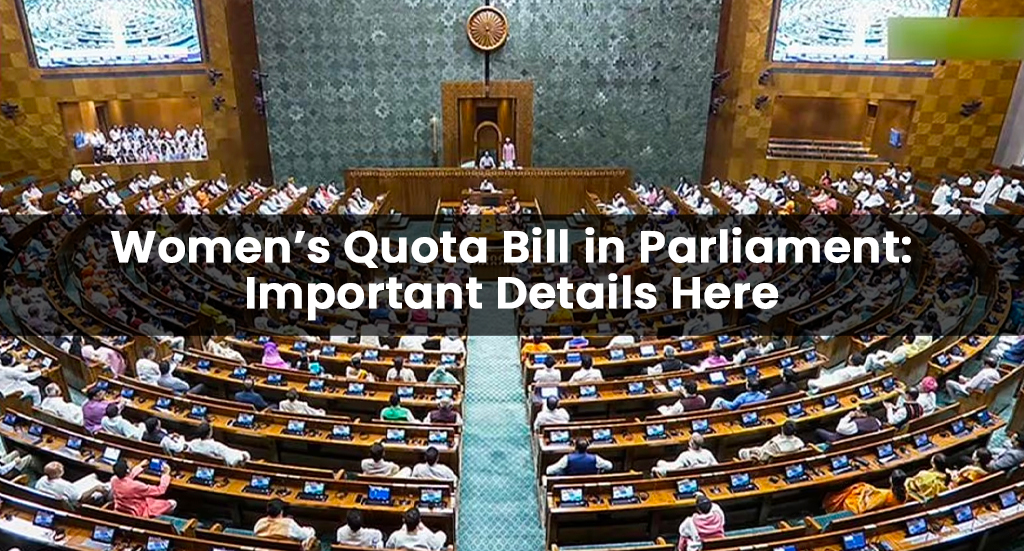The government on Tuesday, 20th September 2023, introduced the historic women’s reservation bill in Parliament, seeking to reserve 33% of seats in Parliament and state legislatures for women through a constitutional amendment. Law Minister Arjun Ram Meghwal presented the women’s reservation bill in the Lok Sabha, emphasising the government’s aim to prioritise “Nari Shakti” (Women’s power). The bill proposes that one-third of the seats in the Lok Sabha, Delhi, and state legislatures throughout India should be set aside for women candidates. This information is also mentioned in the document available on the Sansad website.
This is referred to as the Constitution (One Hundred and Twenty-eighth) 128th Amendment Bill, 2023. It marks the end of a 27-year-long endeavour to ensure more representation for women in state and national politics. The last attempt to pass the Bill was in 2010 when a similar bill – tabled by the Congress-led UPA government – was approved by the Rajya Sabha but didn’t pass in the Lok Sabha.
However, reserved seats for women won’t become a reality right away even if the parliament approves them. These reserved seats will only be put into action after the upcoming delimitation process, scheduled to occur after 2026. Furthermore, this implementation is contingent on having the most current census data, which is presently delayed.
India currently reserves one-third of the seats for women in Panchayats.
Key Highlights of the Women’s Reservation Bill:
- Allocate one-third of all seats in the Lok Sabha, state legislative assemblies, and the legislature of the National Capital Territory of Delhi for women.
- Among these, one-third of the seats will be set aside for scheduled castes and scheduled tribes.
- The reservation policy will end 15 years after the law comes into effect.
- The seats that are reserved can be changed periodically, allowing different individuals to hold them.
- The approved provisions will only become active after a redrawing of electoral boundaries, known as delimitation, is carried out.
- Delimitation will be based on the data collected from the first census conducted after the bill is passed.
- The amendment will be applicable after the respective house or legislative assembly dissolves and won’t impact existing representation arrangements.
Will the Bill Pass?
Constitution Amendment Bills must receive approval from both Houses of Parliament with a majority of the total members and at least two-thirds of the members present and voting. Given that a majority of political parties are in favour of the Bill, passing it should not pose any significant challenge. The same level of support is anticipated from all States and the Union Territory of Delhi.
Will this Bill Bring a Positive Change?
Political empowerment of women means giving women the power and opportunity to be actively involved in politics like being elected as leaders or participating in decision-making processes that affect their communities and countries. This is important because it helps ensure that women’s voices are heard and their needs and concerns considered when making important decisions.
When women are part of the decision-making, they can suggest and create laws and policies that treat everyone fairly, regardless of their gender, which can help to change the unfair beliefs or ideas people might have about what men and women can or should do. It’s like breaking down the old-fashioned thinking that says men and women should have different roles in society.
Having more women in powerful positions can inspire other women and girls to believe in themselves and aim for their goals without being held back by what society traditionally thinks they should do. This creates a ripple effect, making society more fair and equal for everyone.








